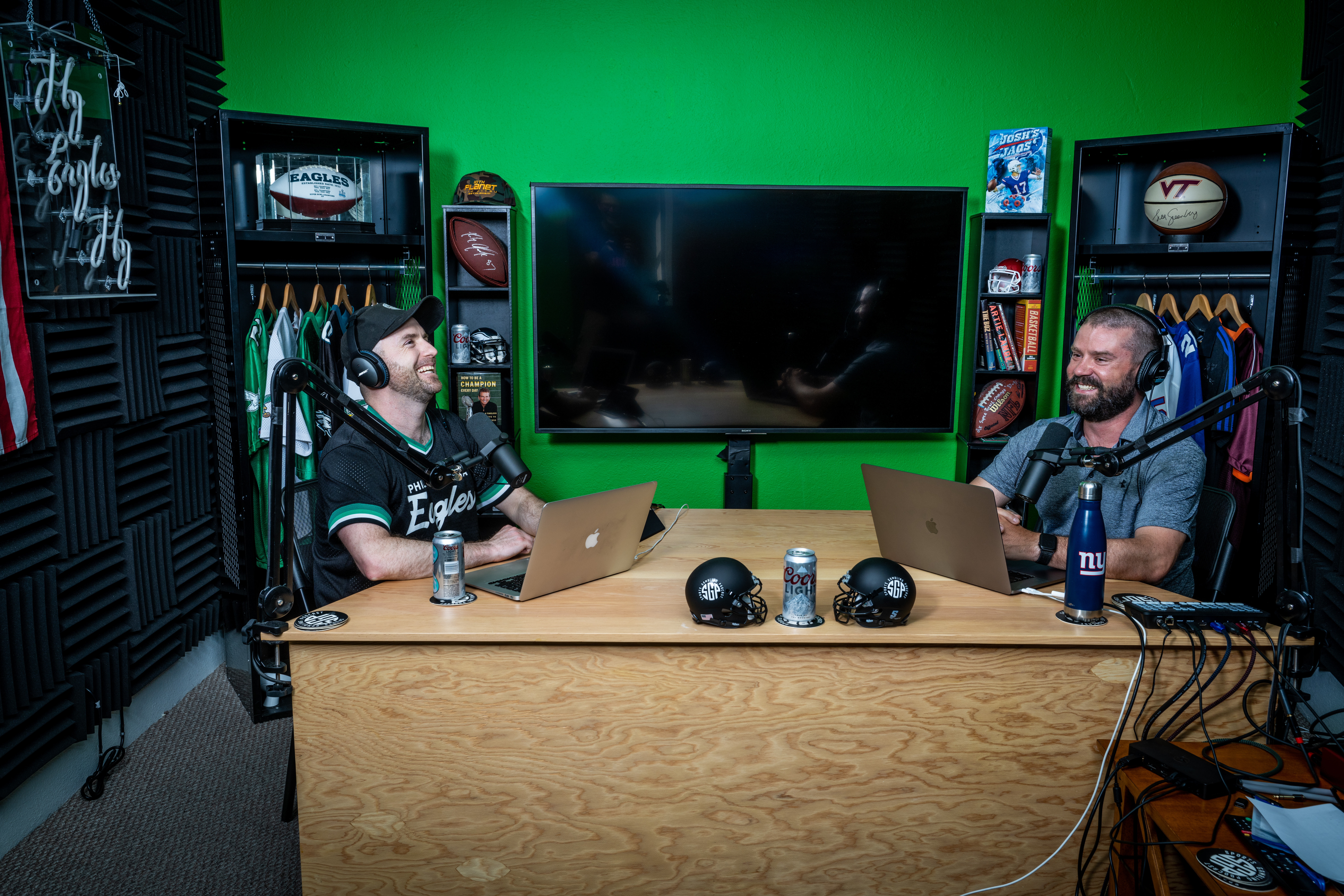When the Supreme Court overturned the Professional and Amateur Sports Act of 1992 in May 2018, the sports betting industry exploded, opening the door for entrepreneurs and businesses to explore the massive stream of revenue produced by individuals gambling on games and teams. But by the time the law changed, Sean Green had already been offering advice and insights to potential bettors for more than seven years as cohost of the Sports Gambling Podcast.
With the 2017 launch of LIR Industries, a chain of sports-related podcasts which does business as the Sports Gambling Podcast Network (SGPN), Green was poised to become an authority in this corner of sports business.
Green and SGPN co-founder Ryan Kramer have spent the last five years burnishing their reputations as sports betting experts, deploying $200,000 that he won that same year in a daily fantasy sports competition to pay for platform infrastructure and logistics, as well as to assemble a team of commentators to provide the company’s growing listenership with additional insights and perspectives.
According to ESPN, U.S. sportsbooks accepted almost $60 billion in bets in 2021, generating more than $4.3 billion in revenue. These numbers are attracting companies eager to get into this rapidly expanding marketplace — California, for example, is set to vote on legalizing gambling in 2022.
But consumers navigating how best to win, much less win big, require expert advice. Green and Kramer saw an opportunity.
“Our podcast was really just an extension of the hobby of talking about the games in a very amateur sense,” Kramer told the Business Journal.
Green indicated that their own time as novices searching for commentators to rely upon helped shape their eventual business model.
“There are a lot of people who claim to be some massive expert, they charge the audience a bunch of money for their picks and then they don’t deliver,” Green said.
“All of our podcasts, our web posts, the app, everything we put out is completely free, so our credibility is just hung on complete transparency. We keep track of all of our picks, so you can go on the website and see our records if we win or lose.”
Fan base
As scrappy as their operation may have once seemed, its progress to date has given them a credibility that younger shows and podcasts haven’t yet earned, even when their competitors feature hosts or commentators with a pedigree that looks good on paper.
“A lot of these new gambling shows take a former sideline reporter and turn them into a gambling expert,” Green said. “They may do their research, but I think the audience hears them and goes, ‘This person wasn’t sweating out 16 parlays in their garage in 2013.’”
“This is more about connecting with your audience in a way that they want to win with you just as much as they want to lose with you,” Kramer added.
The camaraderie they’ve generated with listeners has paid off: Between 2017 and 2021, SGPN’s revenue grew tenfold, as has its podcasts’ total number of downloads, leaping from 350,000 for the entire year of 2018 to 3.1 million in 2021. And they show no signs of slowing down, expecting to hit 1 million downloads in 2022 by the end of February.
“And usually, January and February are kind of slow months for us,” Green said, though he admitted that their proximity to Super Bowl LVI unquestionably helped, leading not only to getting credentialed for Super Bowl media week but eventually to athlete interviews with former NFL players LeGarrette Blount, Bill Romanowski, Eric Metcalf, Adam “Pacman” Jones and Joe Theismann, and former NBA player John Salley.
Kramer went on to explain that as SGPN has grown in popularity, they have expanded their team of commentators. While he and Green authoritatively cover both college and professional football and college basketball, they have hired contributors to zero-in on more granular details about these leagues, as well as sports they’re less familiar with, such as mixed martial arts and NASCAR. The approach has enabled the network to expand its offerings to 17 different shows.
“We have a third guy that joins us on the show to talk college sports because he’s kind of like a savant when it comes to some of these,” Kramer said. “There’s what, 300 teams in division one college basketball, but he really goes deep with that stuff.”
Most recently, they invited former Olympic gold medalist Joe Polo to join them for a discussion about the betting odds for curling, timed to run during the 2022 Winter Games.
Competition heats up
Green and Kramer said that they have not taken any investment money, building their podcast network solely through incremental but steady growth. SGPN generates revenue primarily from advertising, much of it for sportsbooks or gambling-related services, followed by alcohol, cryptocurrency and “men’s lifestyle” products.
“The type of people that are listening to the sports gambling podcast, you immediately know the demographic, and you immediately know what they’re into,” Kramer said.
While the network doesn’t yet attract the same subscriber numbers as its corporate-sponsored competitors, SGPN’s relative longevity in the space has given Green and Kramer an advantage as sports betting handicappers and a more informed perspective about an industry and an audience that has become more distinctly defined even as it is constantly expanding.
“I still remember in 2017 when Fox set up a TV studio inside the Westgate sportsbook for March madness,” Kramer recalled. “Before that no one talked about it. And now when you watch SportsCenter, you can’t watch these shows without them mentioning the spread because they have some drafting sponsor.”
“When we were doing our shows in like 2014, we weren’t competing with NBC Sports. There was no Action Network,” Green added. “So, the appetites increase, the competitions increase, but I think what’s cool about us and what people gravitate to is that we are truly independent. And we’re not getting boxed out by NBC and ESPN. We’re holding our own.”

